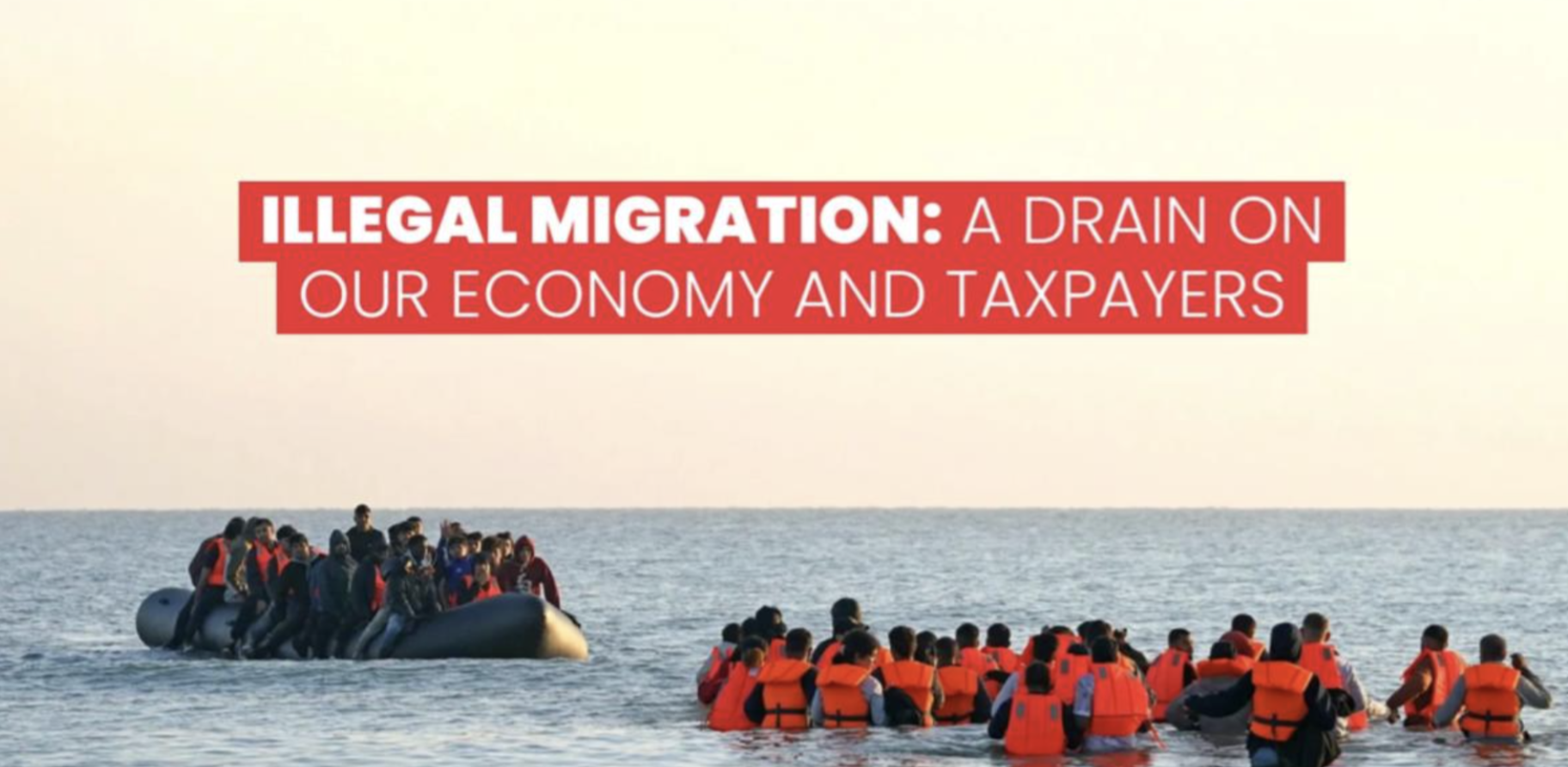
This is a preview of Migration Watch’s free weekly newsletter. Please consider signing up to the newsletter directly, you can do so here and will receive an email copy of the newsletter every week as soon as it is released.
First, the Damascene conversion. On Thursday, the former editor of the Spectator, Fraser Nelson, wrote approvingly in his Daily Telegraph column (see article of the week below) about Sweden’s success in reducing net migration to zero and cutting refugee intake by 80 per cent.
Five years ago, in an editorial in the 9 November 2019 edition of The Spectator, he wrote: “Britain has become the most successful melting pot in Europe, absorbing 2.5 million people over this decade without the far-right backlash seen in much of the continent…”
Fast forward to last Thursday and he readily admits to having been a fan of mass migration:
“I’ve long been a supporter of mass immigration, thinking every economy needs to be open to the world and its talents… In general, immigrants flatter most social metrics and now make up one in five workers. We have managed all this with far less of the xenophobic backlash recently seen on the Continent.”
At this point, one senses a ‘but’. And lo and behold:
“But those of us who argue that immigration is a net benefit need to be honest about what we mean. Yes, we can list the advantages. But we ought to admit to the drawbacks – and who suffers them. Those who employ immigrants (as cleaners, bartenders, nannies) will have a different view than those who find themselves competing with the newcomers for housing, school places, GP appointments or jobs.”
Familiar words? They will be to longstanding supporters of Migration Watch because we have been making this precise argument over many years, as shown in the BBC 2 programme, Immigration: How British Politics Failed that we wrote about in last week’s newsletter. Lest we have any doubt that Fraser Nelson is commending Sweden’s immigration policies, he ends his piece with this:
“If Sweden can do this within the EU’s free movement rules, Britain ought to be able to manage with full Brexit powers. But it would first require the political will: and a sober look at the situation and the Ghost of Christmas Future laid out today by the DWP data [showing the number of working-age people on long-term sickness benefit had hit 3.2 million and was heading for 3.8 million in five years’ time.] On current trends, a country struggling to build houses will be welcoming 1.5 million immigrants over the next five years while consigning 840,000 off to long-term sickness benefits. Does this sound like a sensible way to run an economy – or society? If not, it’s time to get thinking.”
It seems Fraser Nelson is the latest convert to join others (like the Adam Smith Institute and Mark Littlewood, erstwhile director of the IEA) along the road to Damascus. We bid them all a warm welcome.
One final point; Mr Nelson refers to a post-budget forecast of net migration settling at about 300,000 a year for the foreseeable. We don’t think this is likely to happen during this parliament and unlikely after that, unless the necessary measures are introduced, along with a cap. Nevertheless, even if net migration were to fall back to a steady annual 300,000 (plus the children that will be born to migrants), we would still be looking at a projected growth in our population of around nine million people well before 2050, (i.e., in the next 20-25 years.) With net migration of 600,000 a year (plus the children of migrants), population is projected to grow by around 20 million in the same period. Moreover by 2050, with such scales of migration, we will be well on the way to the majority becoming the minority.
This is a preview of Migration Watch’s free weekly newsletter. Please consider signing up to the newsletter directly, you can do so here and will receive an email copy of the newsletter every week as soon as it is released.
